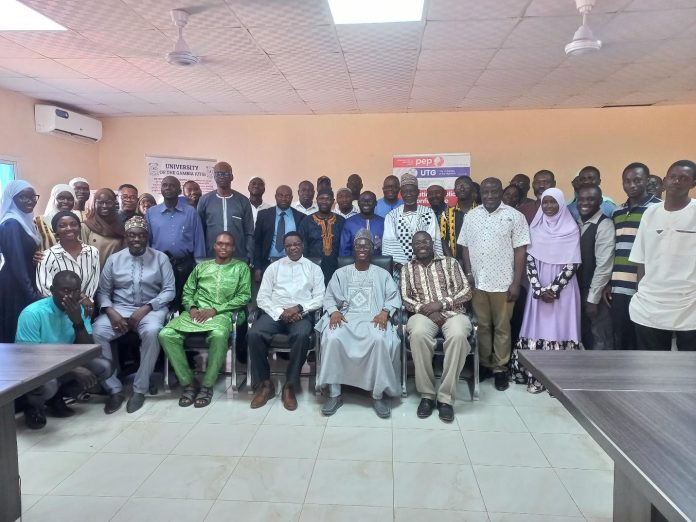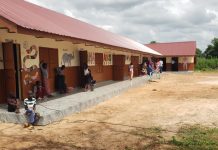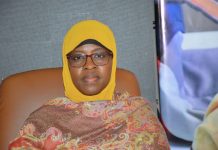By Assan Bah
Dr. Amadou Jallow, a faculty member at the University of The Gambia (UTG), has developed a groundbreaking study on the double-shift schooling (DSS) system, aimed at expanding access to education by dividing the school day into morning and afternoon sessions.
According to education experts, the study has far-reaching implications for improving both the quality and equity of education in The Gambia.
The findings were presented during a high-level workshop held on Tuesday at the UTG Kanifing Campus. The event brought together a diverse audience, including education stakeholders, students, and representatives from the Ministry of Basic and Secondary Education (MoBSE) and the Ministry of Higher Education, Research, Science and Technology (MoHERST). Discussions centred on how the DSS model impacts learning outcomes at both foundational and secondary education levels.
Dr. Jallow acknowledged growing public sentiment against the double-shift system, including calls for its reduction or complete abolition. However, he argued that eliminating DSS would come at a steep cost, both financially and in terms of human resources.
Professor Kayode Adekeye, Deputy Vice Chancellor for Academics at UTG, emphasised the significance of the research.
“The double-shift system was introduced as a practical solution to rising enrolment and limited infrastructure. It has helped expand access to education—but access alone is not enough,” he said. “The critical question is: Are our children truly learning? That’s why we are here today. This research allows us to look beyond attendance and examine how double-shifting impacts actual learning outcomes, classroom engagement, and the quality of infrastructure.”
Professor Adekeye underscored UTG’s commitment to supporting rigorous, locally grounded research. “Our aim is not merely to publish findings but to inform stakeholders and guide public policy. This dissemination marks the beginning of a wider national conversation about how we reform our policies, prioritise investment, and build an education system that delivers meaningful learning for every child.”
He commended Dr. Jallow’s leadership in producing what he called a “landmark study,” and thanked the Global Education Analytics Institute, the Partnership for Economic Policy, and the Africa Fellowship in Education Program for supporting the initiative and helping to build local research capacity.
Louis Moses Mendy, Permanent Secretary at MoBSE, provided insights into the government’s rationale behind the DSS model.
“To ensure we have the desired parity in student-teacher ratios, we introduced double-shifting to bridge the gap caused by the shortage of qualified teachers,” he explained. “To eliminate DSS, we need two things: the required teacher strength and adequate school infrastructure to accommodate all students.”
Mendy revealed that over 23,000 teachers are currently on the government payroll, serving more than 800,000 students nationwide. “Despite this, we continue to rely on double-shifting in many schools because we simply cannot afford to increase the number of teachers.”
He reaffirmed the ministry’s goal of eliminating double-shifting by 2030, in line with its education policy review covering the period 2016 to 2030. “Double-shifting affects the quality of learning, but under our current constraints, it remains a necessary compromise,” he added.
Professor Pierre Gomez, Minister of Higher Education, Research, Science and Technology, praised the study as a critical contribution to national development.
“This research reinforces a principle we strongly uphold—that effective and sustainable solutions must be informed by local evidence, generated by local expertise, and tailored to our local context,” he said.
Professor Gomez reiterated his ministry’s dedication to strengthening The Gambia’s research and innovation ecosystem. “We believe research must go beyond academia. It must inform decision-making, shape national priorities, and guide our collective development trajectory,” he added.
He acknowledged that while DSS was introduced as a practical response to limited infrastructure and rising enrolment, it’s time to re-evaluate its impact.
“It has served its purpose in expanding access, but we must now ask: is it enhancing learning or compromising it?” he asked.



















